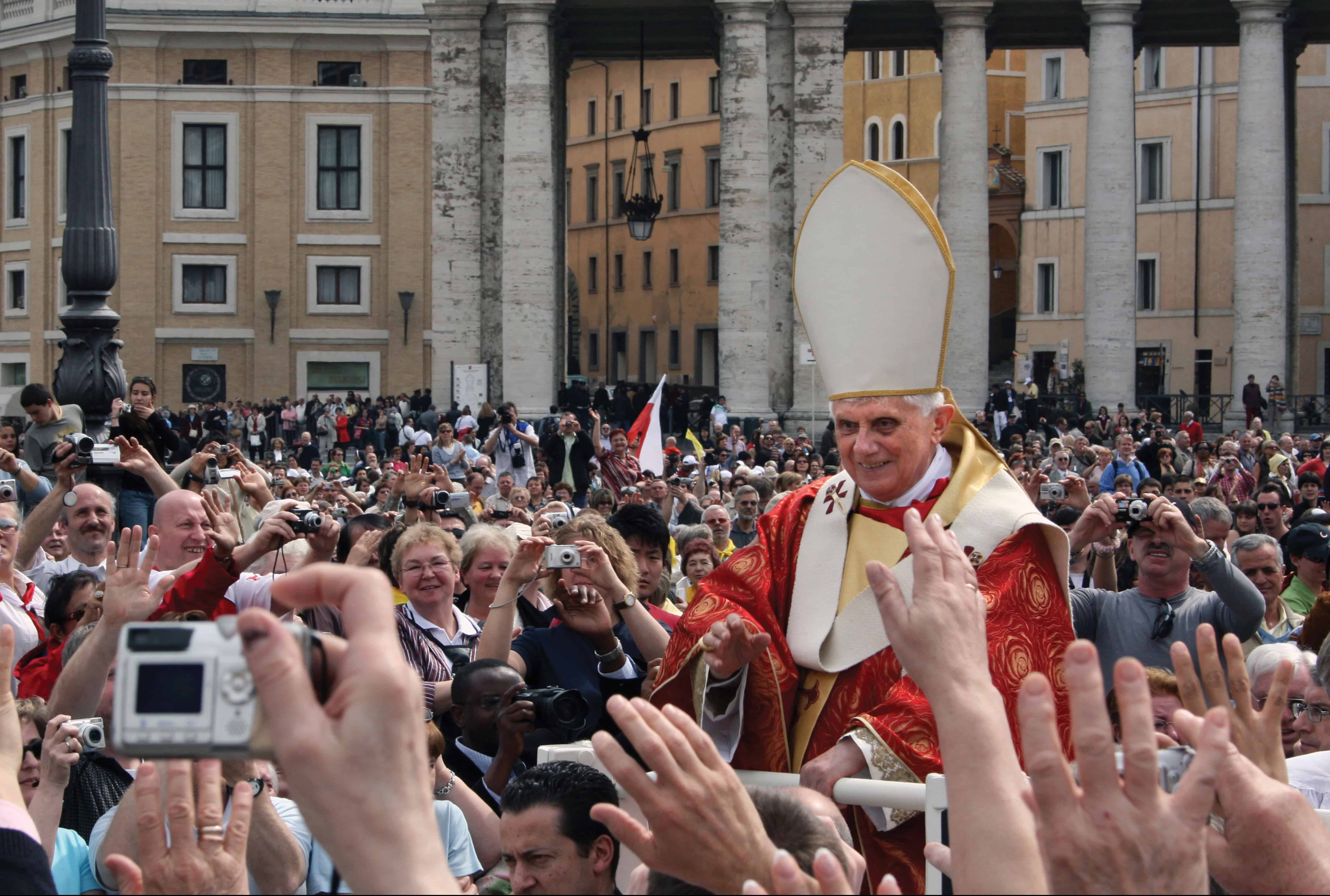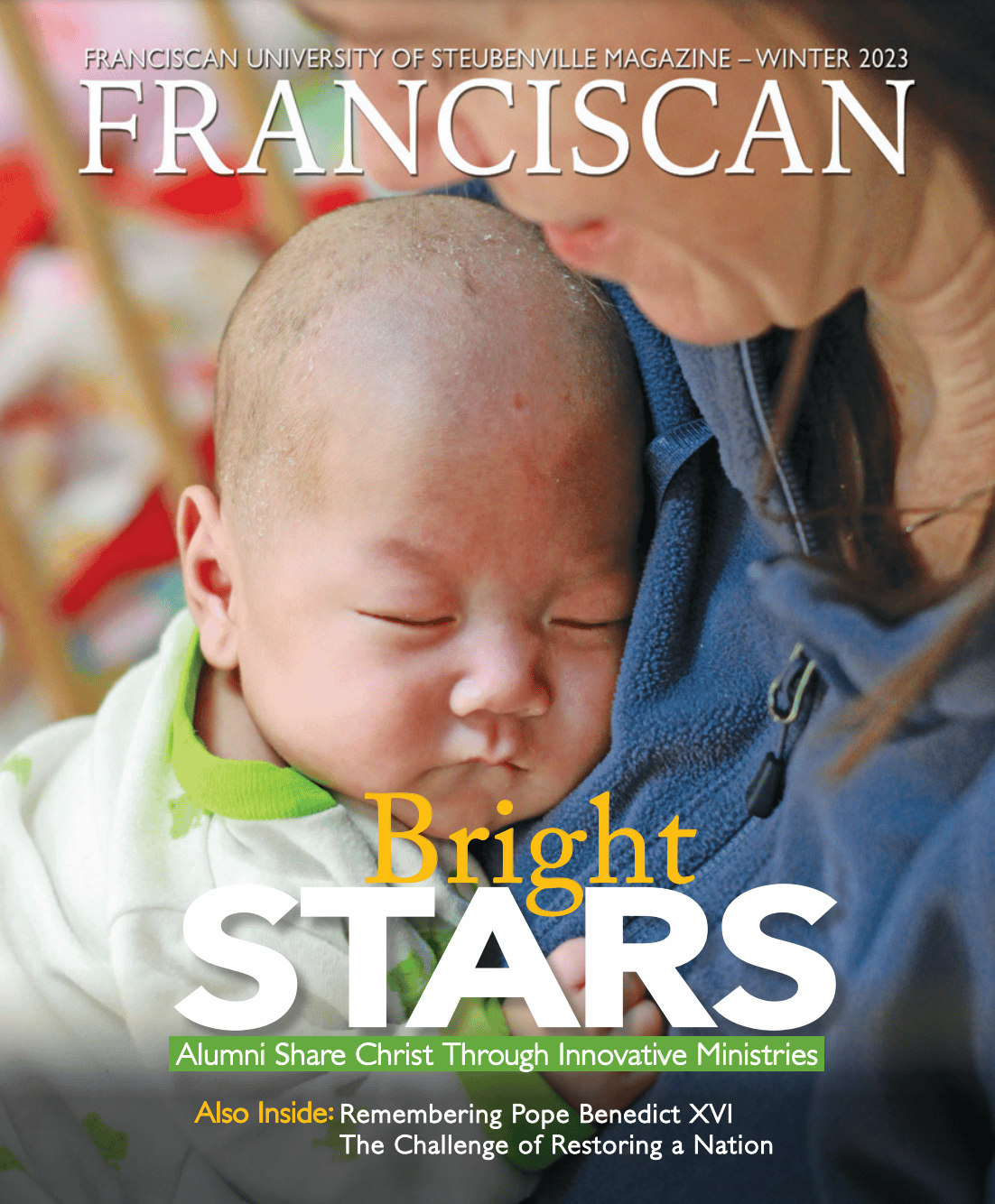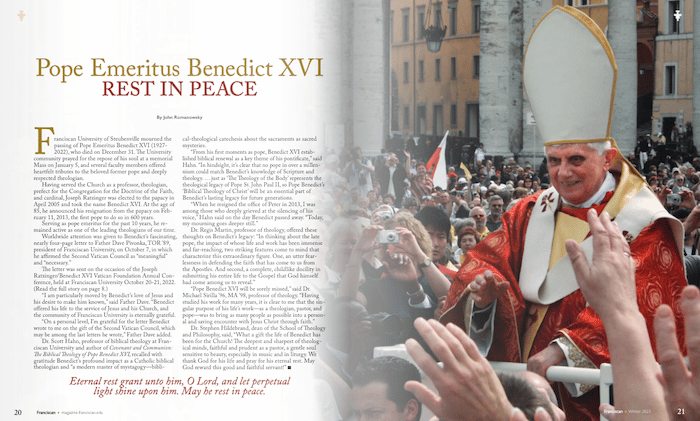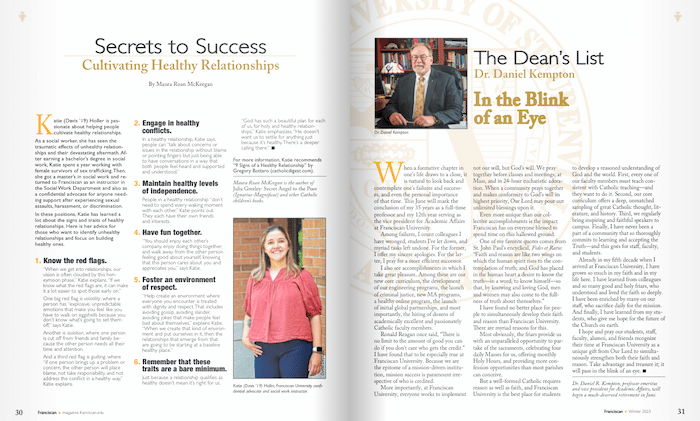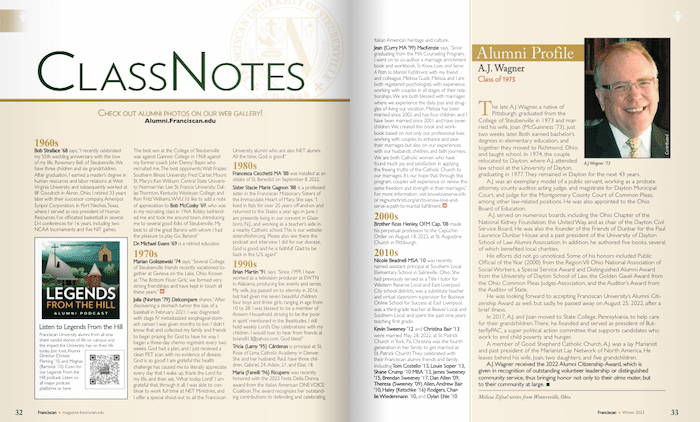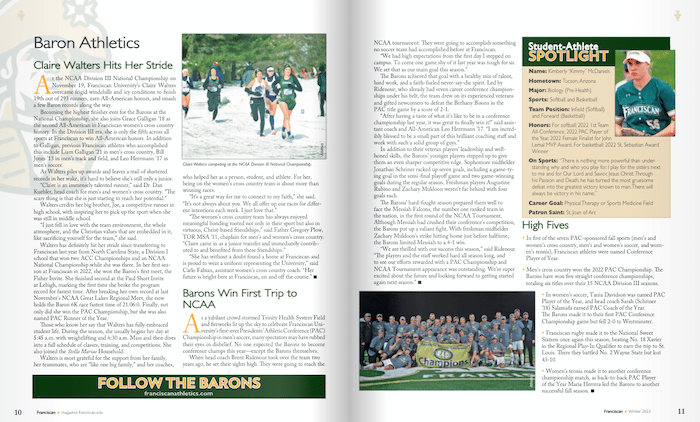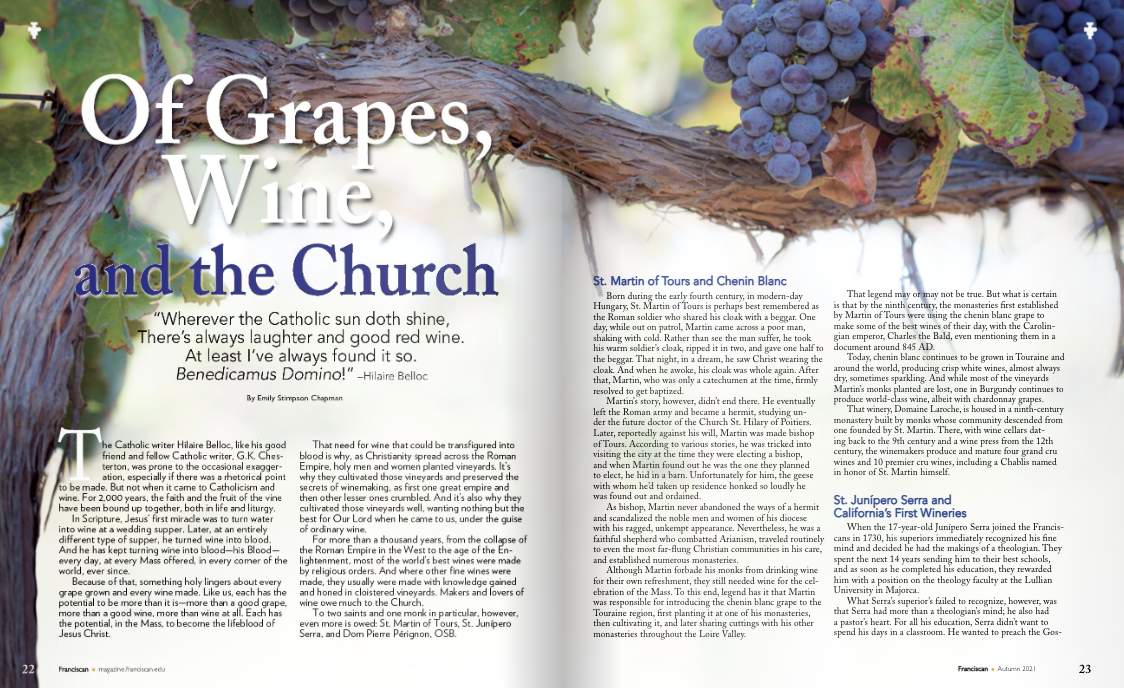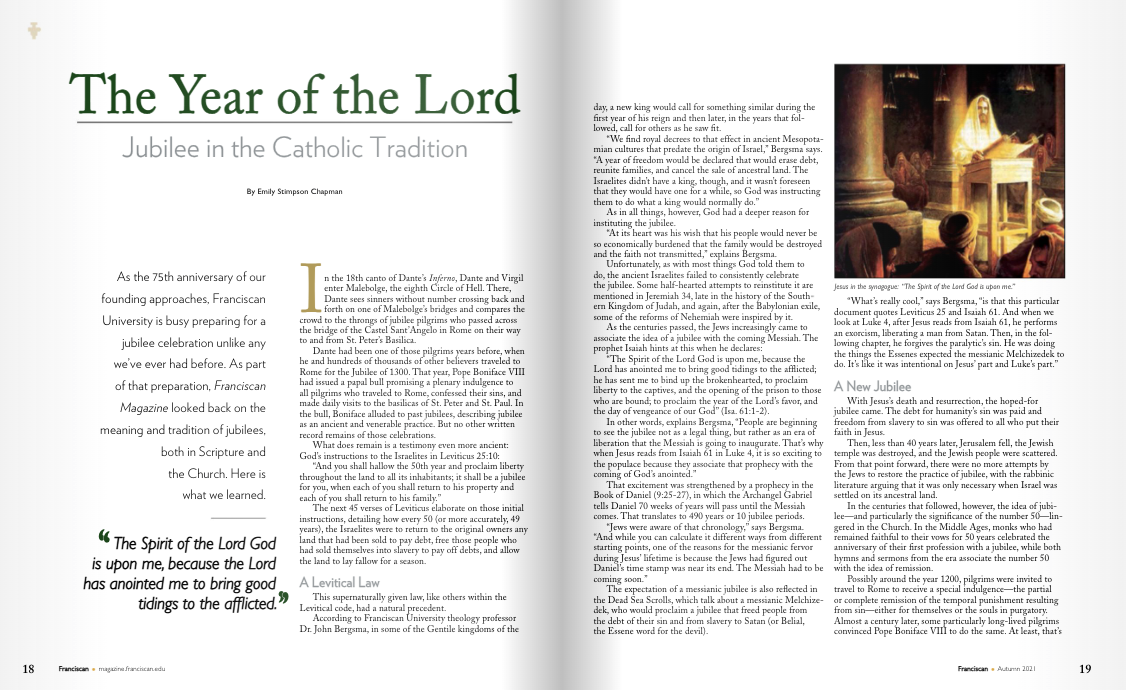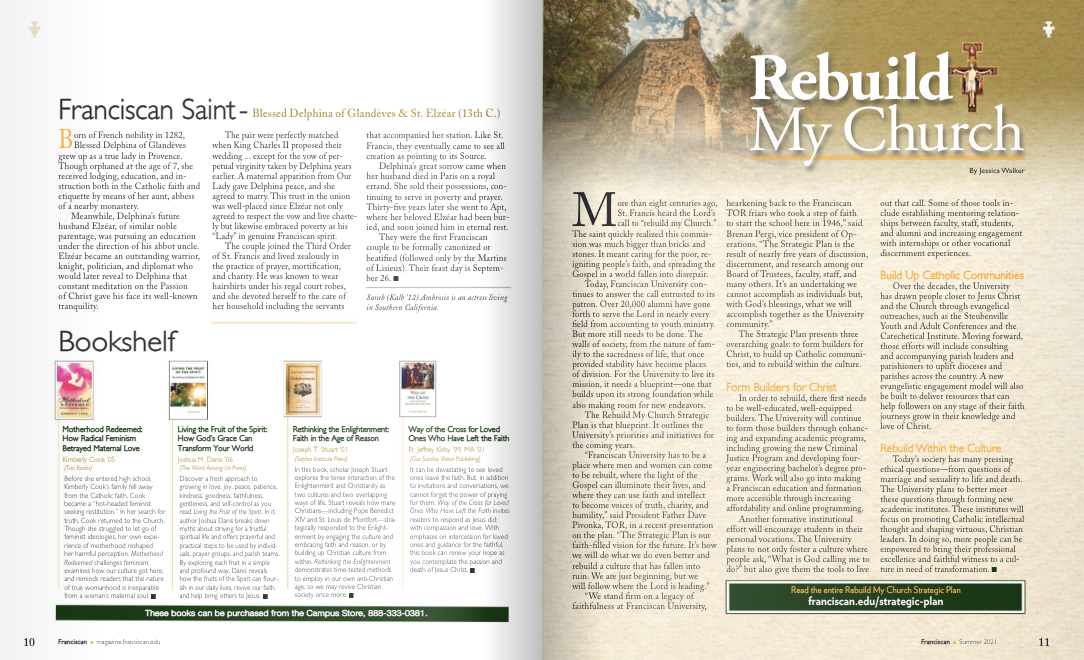Franciscan University of Steubenville mourned the passing of Pope Emeritus Benedict XVI (1927- 2022), who died on December 31. The University community prayed for the repose of his soul at a memorial Mass on January 5, and several faculty members offered heartfelt tributes to the beloved former pope and deeply respected theologian.
Having served the Church as a professor, theologian, prefect for the Congregation for the Doctrine of the Faith, and cardinal, Joseph Ratzinger was elected to the papacy in April 2005 and took the name Benedict XVI. At the age of 85, he announced his resignation from the papacy on February 11, 2013, the first pope to do so in 600 years.
Serving as pope emeritus for the past 10 years, he remained active as one of the leading theologians of our time.
Worldwide attention was given to Benedict’s fascinating, nearly four-page letter to Father Dave Pivonka, TOR ’89, president of Franciscan University, on October 7, in which he affirmed the Second Vatican Council as “meaningful” and “necessary.”
The letter was sent on the occasion of the Joseph Ratzinger/Benedict XVI Vatican Foundation Annual Conference, held at Franciscan University October 20-21, 2022.
“I am particularly moved by Benedict’s love of Jesus and his desire to make him known,” said Father Dave. “Benedict offered his life to the service of Jesus and his Church, and the community of Franciscan University is eternally grateful.
“On a personal level, I’m grateful for the letter Benedict wrote to me on the gift of the Second Vatican Council, which may be among the last letters he wrote,” Father Dave added.
Dr. Scott Hahn, professor of biblical theology at Franciscan University and author of Covenant and Communion: The Biblical Theology of Pope Benedict XVI, recalled with gratitude Benedict’s profound impact as a Catholic biblical theologian and “a modern master of mystagogy—biblical-theological catechesis about the sacraments as sacred mysteries.
“From his first moments as pope, Benedict XVI established biblical renewal as a key theme of his pontificate,” said Hahn. “In hindsight, it’s clear that no pope in over a millennium could match Benedict’s knowledge of Scripture and theology. … just as ‘The Theology of the Body’ represents the theological legacy of Pope St. John Paul II, so Pope Benedict’s ‘Biblical Theology of Christ’ will be an essential part of Benedict’s lasting legacy for future generations.
“When he resigned the office of Peter in 2013, I was among those who deeply grieved at the silencing of his voice,” Hahn said on the day Benedict passed away. “Today, my mourning goes deeper still.”
Dr. Regis Martin, professor of theology, offered these thoughts on Benedict’s legacy: “In thinking about the late pope, the impact of whose life and work has been immense and far-reaching, two striking features come to mind that characterize this extraordinary figure. One, an utter fearlessness in defending the faith that has come to us from the Apostles. And second, a complete, childlike docility in submitting his entire life to the Gospel that God himself had come among us to reveal.”
“Pope Benedict XVI will be sorely missed,” said Dr. Michael Sirilla ’96, MA ’98, professor of theology. “Having studied his work for many years, it is clear to me that the singular purpose of his life’s work—as a theologian, pastor, and pope—was to bring as many people as possible into a personal and saving encounter with Jesus Christ through faith.”
Dr. Stephen Hildebrand, dean of the School of Theology and Philosophy, said, “What a gift the life of Benedict has been for the Church! The deepest and sharpest of theological minds, faithful and prudent as a pastor, a gentle soul sensitive to beauty, especially in music and in liturgy. We thank God for his life and pray for his eternal rest. May God reward this good and faithful servant!”
Eternal rest grant unto him, O Lord, and let perpetual light shine upon him. May he rest in peace.



